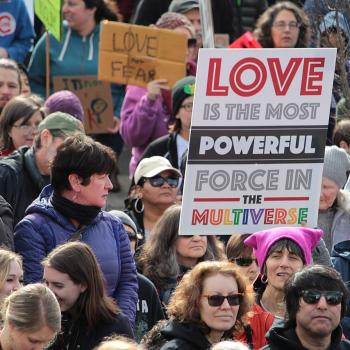In the last few months, thanks to the wonderful discussions at Rogue Priest, my understanding of the Heroic Life has become much clearer. What began as a theory—a direction of exploration—has taken shape as something that can actually be lived.
I am not a hero. I accept this. I may never be a hero; the chance to earn that honor is not something anyone can guarantee. But to live my life heroically -- to live in a way that exemplifies the heroic spirit—is something I can do.
It's also something you can do, if you want.
As near as I can tell, here's the best way to do it.
Step 1: Know What a Hero Is
Thanks to conversations with a lot of brilliant readers, I've finally put my definition of a hero into words. It goes something like this:
A hero is someone who takes extraordinary personal risk to help people, with no personal stake in doing so.
Both parts of this sentence are equally important. People who help others selflessly, but only when there's no significant risk, are good citizens but not necessarily heroes. Think of volunteer work, donating to charity, or organizing an event for your kids' school. On the other hand, people who take significant risk to help others but only when they have a personal stake are very loyal friends, but again, not necessarily heroes. A good example is a parent who risks their life to save their child.
There are many other definitions of "hero" out there, and this one is pretty strict. But there's a good reason for that: it reminds us that a hero goes beyond just being a good person. Heroes are rare individuals. That's partly because the opportunity to be a hero doesn't present itself every day—but it's also because most of us, if given the chance, would run from that opportunity.
This distinction is pretty clear if you look at the heroes of myth. Achilles was not the central hero of the Iliad because he was a good citizen or a good parent. In fact, he may not have even been very good at either of those things. And the Greeks had a strong moral code and expected people to help their city-state, and even fight for it; even the fact that he was a warrior did not make him special.
Achilles was special because he was given the choice to live a peaceful, long life or die fighting, and he chose to die fighting. The reason he made his choice was in pursuit of kleos, deathless renown, which was an ideal among the ancient Greeks. Nowadays we may have very different ideals, but to be a hero still means choosing the relentless pursuit of those ideals even when it means giving up the comfort of a normal life.
Which brings us to...
Step 2: Get Out of Your Comfort Zone
In past columns, I've talked about the value of doing things that are difficult, uncomfortable, and scary. Doing these things voluntarily is a way of preparing yourself, of learning how to handle stress and uncertainty. At some point in life, we're all going to have a crisis that threatens to completely paralyze or break us—most people will go through more than one such crisis in the course of their life. It's in these times that the average person runs away, panics, or doesn't know how to react. But a hero does, and it's a result of practice.
There are lots of things that can serve as training. It can be physical stunts like whitewater rafting, or personal challenges like offering to do a presentation even though you don't like public speaking. In Walk Like a God, I talk about treating these challenges as a spiritual practice. I identify two essential traits that a challenge into an effective practice:
- There is an element of exploration, the unknown, or something new.
- It's hard enough that your current skills won't cut it.
Choose just about any activity that meets those requirements, and if you work hard at it you will not only step out of your comfort zone—you will actually expand the limits of what you can handle.
If you make this into a habit you'll quickly become the kind of person who can handle any surprise or emergency with grace under fire. Plus, you'll have a reason to...





